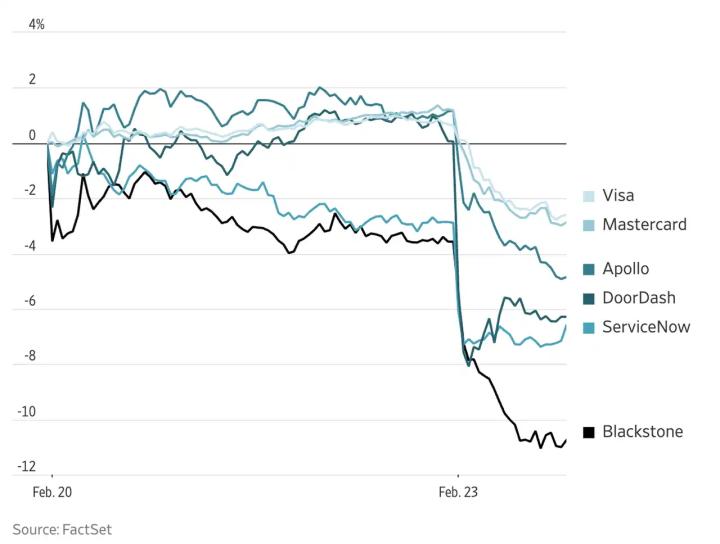If Google’s generative AI Gemini Assistant chatbot is to surpass OpenAI’s ChatGPT in popularity in the coming years, it may have to do so without some of the promotional partnerships that helped thrust Google search front and center into Americans’ lives.
In a US federal court filing on Friday, Google proposed a series of restrictions that for three years would bar the company from requiring its device manufacturer, browser, and wireless carrier licensees to distribute Gemini to their US users. Google also would give those partners more flexibility in how they set their default search provider for their users.
Google’s proposal counters last month’s call from the US Justice Department for Google to not only loosen its grip over partners, but also share more data with competitors and divest its Chrome browser business. The company on Friday formally rejected the idea of selling off any piece of its business or turning over more information to rivals. And its proposed restrictions could be construed as narrower than those sought by the government.
The battle follows a ruling this past August by US district judge Amit Mehta in Washington, DC, who found that Google violated federal antitrust laws through deals it struck to be the default search provider on iOS and other software often in exchange for sharing ad revenue with the partners. The default arrangements helped Google gain and hold onto users, giving it monopolies in both search and search ads, Mehta found. The search giant was able to increase ad prices without constraint, fueling “dramatic revenue growth” and “remarkably stable operating profits,” Mehta wrote in his ruling.
Now, Mehta must decide what penalties Google will face. He has scheduled hearings starting in April and is expected to release his decision by next August.
The emergence of ChatGPT, Gemini, and similar chatbots as competitors to traditional search engines have loomed over the court’s proceedings. The Justice Department and several state attorneys general involved in the case have wanted to ensure that Google isn’t able to transfer its dominance in old-school search to this emerging field.
But even after Mehta’s upcoming ruling, appeals are expected to follow. It could be years before any curbs on Google go into effect. That’s left investors bullish about the prospects of Google and its parent company, Alphabet. Shares of the conglomerate have gained over 37 percent in 2024, on pace to be its eighth-best annual surge since going public 20 years ago.
During this year’s trial, Google attributed its dominance in search to developing an experience beloved by users. The Justice Department argued that users stick with the default on their phones and browsers—often Google. The company’s proposal on Friday underscored that Google doesn’t want to lose those defaults entirely. It would allow, for instance, Google to secure default search status on some Samsung phone models in the US while temporarily suspending a requirement that all of them do so.
Google also could still reach deals to promote Gemini. Nothing in Google’s proposal would prevent it from paying Samsung to promote Gemini on all of its devices. But under the proposed restrictions, Google wouldn’t be able to require partners to promote Gemini as a condition of being able to distribute search, Chrome, or the Google Play app store. And it wouldn’t be able to restrain partners from also working with rival AI companies like OpenAI.
Deals that required exclusivity and tied promotion of Google search to distribution of other Google services have been key to the company’s power, according to the government.
Google proposed “specific provisions addressing generative artificial intelligence chatbot products, in order to allay any concern that Google could employ exclusive distribution agreements to obtain preload of its Gemini Assistant chatbot,” the company’s attorneys wrote in court papers on Friday. “These provisions address the potential for generative artificial intelligence chatbots to become substitutes for general search engines.”
The company’s proposal on Gemini mirrors some of the government’s. In the court filing last month, the government said Google should be barred from preferencing its AI products or preventing partners from promoting rival AI tools.
But the parties remain far apart on both the degree and duration of the remedy. The government has called on Mehta to impose restrictions for a decade. Google wants curbs to end after three years. “The pace of innovation in search has been extraordinary and there is every reason to believe that will continue as developments in artificial intelligence rapidly change online computing products and services,” attorneys for the company wrote. “Regulating a fast-changing industry like search with an invasive decree like the one proposed by Plaintiffs would harm competition, innovation, and consumers.”
Last month, some former Google executives told WIRED that there’s little Mehta could order that would significantly shift the search market, where the company has 90 percent global market share, according to analytics company Statcounter. Instead, the executives said competitors must innovate to catch up to Google. But some Google search competitors say remedies could help create conditions that give other search engines a better chance of winning over users.
In the runup to the hearings beginning in April, Google and the Justice Department have been seeking a mix of records and testimony from AI search companies including OpenAI and Perplexity to bolster their respective cases. With the parties finding common ground on restrictions on AI distribution, Gemini's integration into American life could look much different than Google search did.







